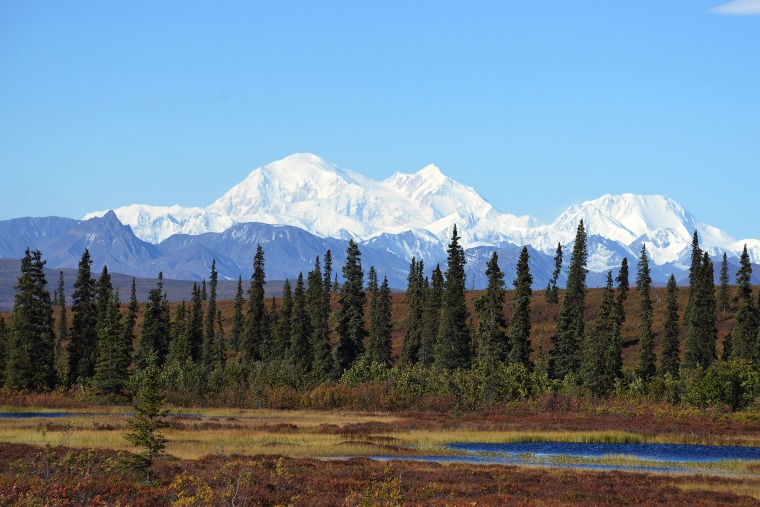
One descendant of the 25th president was ecstatic when President Donald Trump signed an executive order on his first day back in office renaming Alaska’s Denali, the highest peak in North America, after President William McKinley.
“He deserves to have the mountain named after him,” said great-great nephew Massee McKinley on Thursday. “His integrity was unmatched. People held him in high regard.
However, a number of Alaskan officials, including the state’s two Republican senators, have expressed objection to the shift, indicating that Trump’s decision is being met with resistance. Massee McKinley is therefore in favor of a solution that would preserve Denali National Park and Preserve while renaming it Mount McKinley.
“The international community’s always going to know the entire park and the mountain as Denali, and we don’t dispute that,” McKinley stated. However, I firmly believe that we can reach a compromise in the United States from a national standpoint. That doesn’t seem problematic to me.
The park’s name is really intended to be preserved under Trump’s executive order, which states that “the national park area surrounding Mount McKinley shall retain the name Denali National Park and Preserve.”
At an astounding 20,310 feet, the mountain was formally acknowledged as Mount McKinley by the federal government in 1917. Indigenous cultures had previously given it names of their own, such as Denali, which means “the tall one” in the Athabascan language.
In 2015, the Obama administration officially recognized the mountain as Denali.
Trump has proposed calling it Mount McKinley during his first administration. Dan Sullivan and Lisa Murkowski, two senators from Alaska, opposed it.
Requests for response from their offices on Thursday were not immediately answered, but both have reiterated their opposition to Trump’s executive order.
Sullivan stated in a video post on X that “I prefer the name Denali that was given to that great mountain by the great patriotic Koyukon Athabascan people thousands of years ago.”
Sullivan informed Alaska Public Media in 2017 that he had persuaded Trump not to change the name in a chat. He claimed to have told him: “That peak was named more than 10,000 years ago by Alaska Native people. By the way, my wife is Athabascan, and if you change her name back now, she would be furious. That was the Athabascan people. ‘All right, we won’t do that,’ he said.
At campaign rallies, however, Trump declared that he would rename Denali in honor of McKinley, who served as president from 1897 until his murder in 1901. The employment of tariffs, which Trump has hailed as a key component of his economic strategy, was a hallmark of McKinley’s administration.
McKinley was born in Ohio and had no real ties to Alaska or the mountain. His name was linked to the formation when, in a newspaper story, William Dickey, a late 19th-century gold prospector who was friendly with then-President-elect McKinley, called it “Mount McKinley.”
According to Sondra Shaginoff-Stuart, an associate professor of Alaska Native studies at the University of Alaska Anchorage, it has been referred to as both Denali and Mount McKinley by Alaskans over the years.
However, she acknowledged that the official renaming to Denali had significance.
“The mountain is really magnificent. According to Shaginoff-Stuart, a member of the Pyramid Lake Paiute and Ahtna Dene tribes, “the name is a statement of recognition of Native people in their native language.” “Removing that is just one more technique to make those folks unrecognizable. Native Americans are returning to boarding schools and orphanages after losing their land and language.
Trump reportedly told Massee McKinley, the vice president of the membership-based Society of Presidential Descendants, that he respects McKinley’s business sense and hopes to emulate it in his own position.
“I figured this would happen, and it did come to fruition,” McKinley stated. “I’d love to be a part of the signing process when they actually sign the proclamation for that.”
The Gulf of Mexico will now be known as the Gulf of America, according to Trump’s executive order. The government’s geographic names database must be updated within 30 days by the U.S. Department of the Interior.
